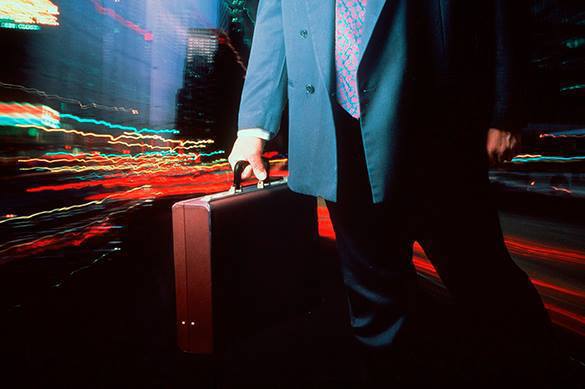Americans smile malignantly, when Russia speaks of its independence
Despite a plethora of problems, the "civilized international community" seems to be preoccupied with only one question: "How can we punish Russia even more?" "We've had the Crimea, the Donbas, the Minsk Accords, now it is Syria's turn." How should Russia deal with all of those "punishments" that do not seem to end? Pravda.Ru editor-in-chief Inna Novikova meets Director General of the Centre for Political Information, Alexei Mukhin, to talk about these issues.

"Before we can start showing influence on Western elites and media, we should deal with our own elites first. During the 1990s, the Russian elites were made to believe that they were supposed to be citizens of the world, that there were no national boundaries, that the financial system of the world was based on the US dollar and reliable financial institutions of America and Europe.
"Unfortunately, during the 1990s, the Russian elite had become very attached to the idea of keeping savings abroad. This gave US analysts a reason to smile malignantly at the time when Russian officials would speak about Russia's independence.
"The behavior of two Russian citizens - Mikhail Kasyanov and Mikhail Khodorkovsky - was very typical at this point. Kasyanov had served as the prime minister before 2003. He had organized his own consulting company MK Analytics, but then something clicked and he had become an opposition activist.
"I believe that Mr. Kasayanov was simply made to face the choice. They just told him: "We know where your money is, so you either do what we tell you to do, or you will have all your money frozen." He became an opposition activist against his own will. He still dislikes it, it's obvious. It appears that he has done all he could to leave this kind of activity behind: he has discredited the idea of opposition per se.
"Another character who behaves similarly is Mikhail Khodorkovsky, who was very close to selling a big portion of Russia's oil industry to ExxonMobil in 2003. The deal failed and Mr. Khodorkovsky went to jail for charges of tax evasion and so on. Afterwards, they used it against Russia, predictably.
"After he was released, Khodorkovsky vowed, before leaving Russia, that he would not engage in politics. He became engaged into politics at once, because he fell into the trap that Mr. Kasyanov had been to before too. He was ordered to be opposed to Putin to be able to access his money. That's all.
"Corruption is a disease that should be treated comprehensively. At the same time, corruption contributes to the development of the Western system, because the money received from corruption goes to Western banks, and Russia is no longer able to return that money.
"It just so happens tat the West has built a very good business: officials steal in Russia and then wire money abroad where it is invested in the economy of the country that has received that money, and Russia will never see it.
"It is also highly important to work with the media. According to our estimates, about a third of Russian mass media outlets are controlled from abroad. They are so-called liberal or pseudo-liberal media. They have foreign owners - one can find this out on the Internet.
"Since 2007, Russia has been taking efforts to return its media. The West immediately said that the Russian propaganda machine was running at full speed. Yet, the West has its own propaganda, and Russia has its own propaganda too."
"What about the recent scandals at art shows in Moscow, where organizers came up with an idea to arrange a photo exhibition of "heroes of the anti-terrorist operation" in the Donbass?"
"This situation is like the Wehrmacht hosting an exhibition of its heroes in 1942 in Moscow. There is a conservative revolution going on in Russia today, and to avoid destructive consequences, one should give an adequate assessment to such behavior of citizens. I personally went to the infamous photo exhibition in the Museum of Photography. I did not like the photos that I saw there, but I have to say that there were no graphic photos there that one could find on the Internet. The reaction to that exhibition was exaggerated and disproportionate. I was there on Saturday, and there were two other people in the room. It raised no interest of the general public. The scandal that it produced was simply a PR act.
"In general, Russia should respond to any challenge by strengthening its society and improving its quality. Russia should take advantage of every problem and challenge that the country faces today. This is what experienced people do, and I hope that hundreds of years of experience will give us an opportunity to feel confident.
Interviewed by Inna Novikova
Pravda.Ru
Read article on the Russian version of Pravda.Ru
Subscribe to Pravda.Ru Telegram channel, Facebook, RSS!


